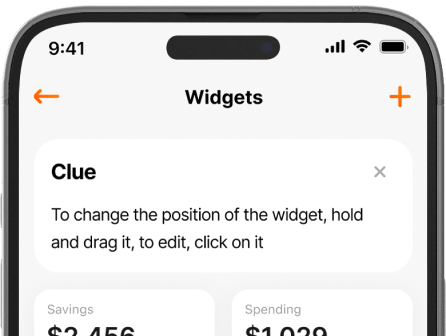It’s never too early to start saving and never too late to learn! No matter which life stage you’re at or how much income you have, being good with money will make your path a little easier and open up additional opportunities. A lot of saving habits stay the same no matter how old you are, of course—automatic deposits, increasing savings with income, making budgets—but your priorities and needs will change, and it’s important to be ready for that!
Spending Control: Children and Teenagers (0-18)
Children and teenagers use money—so why shouldn’t they learn how to use it well? Despite not having steady incomes, they can still have opportunities to save, use bank accounts, budget, and even invest!
Children are generally cared for by their parents, so the consequences for running out of money are quite minimal. That won’t be true later in life, so the primary habit to build in the younger years is spending control. 53% of adults and 70% of millennials with incomes between $50,000 and $100,000 were living paycheck to paycheck in 2021, so learning this lesson early could pay off quite a bit down the road!

Probably the simplest way to introduce spending control as a habit is to reduce the overall amount of money that you have available to spend by paying yourself first. The basic idea is this: as soon as you get money, put some of it in a savings account or somewhere else that you’ve designated as off-limits for spending. Whether you’re an adult or a younger person, this technique will force you to lower your spending and keep your savings growing. Combined with some basic budgeting and goal-setting, paying yourself first can be a great way to begin managing your finances better without needing to put in too much effort upfront.
This is also an excellent time for children to open their first bank accounts and learn how things like interest work. They need somewhere to put their savings, after all! If they’re particularly ambitious, they can open investment accounts, learn about the stock market, and even get a very early head start on retirement with a custodial IRA.
Invest in Yourself Before You Indebt Yourself: Education/Early Career (18-30)
Young adults just getting out on their own, whether it’s into university or the workforce, are suddenly faced with a lot of financial decisions that they’d been used to their family handling. They’re also likely, if they get a higher education, to be going into some fairly large amounts of debt.
Student debt is a good example of investing in yourself, though, so it can actually be thought of as “good debt”! As long as you graduate and get a job, that is. Either way, younger people need skills and experience to be employable, so build learning and professional development into your routine as soon as you can. Even something as simple as spending a few hours a week taking an online course can keep you in the growth mindset you’ll need as you advance your career.

However, it’s vital that you stay out of “bad debt” at this stage—especially if it’s high-interest. “Bad debt” essentially means debt that you have to pay, but which won’t pay off in the future. Using a credit card to buy things you don’t need and can’t afford is a prime example! You’ll pay a lot in interest, which can set your savings back significantly. The concept to remember here is don’t spend more than you have. Credit cards can be great for rewards and building a good credit history, but they’ll help more than they hurt if you don’t pay them in full every month. Also watch out for payday loans, personal loans, and other high-interest debt that doesn’t contribute to your future.
Keep it Real: The Mid-Career/Family Years (30s/40s)
Your 30s and 40s are when your earnings start to move towards their peak, and the natural temptation is to spend more money as you start making more. You might start buying nicer things, taking more expensive trips, living in more expensive places, and generally engaging in “lifestyle inflation”. This isn’t to say that you shouldn’t enjoy life, of course—living a comfortable life and having amazing experiences are important to your well-being! The habit you really need to build here is maintaining a realistic picture of your finances.
“Can I afford it?” doesn’t necessarily equal “Do I have the money to buy it?” You might have the cash in your account, but if that money would otherwise go towards saving for a goal or paying a bill, you shouldn’t view that money as spendable.
The key to remaining conscious of what you can and can’t spend is budgeting! Your income and expenses are probably both increasing, so you need, at minimum, a plan for how much you need to live and save every month. For example, if you have a retirement goal, how much do you need to save every month to meet it? If you’re saving for your children’s education, what’s the monthly cost of that?

Getting in the habit of always knowing how much money is truly free for spending every month will be a massive help in avoiding lifestyle inflation and keeping your savings on track. When your income increases, though, you should be sure to check back in with your savings and expenses to see if you would benefit from increasing your savings contributions. As a rule, you should usually save some of your raise—anywhere from 20%-75% is probably a good idea. Remember that you were able to live on your previous salary, and you probably still can!
Always Be Checking: Late Career/Pre-retirement (40s/50s)
By the time you hit your 40s/50s, you should be thinking seriously about your financial future. The big habits to build here are thinking ahead and checking on your status. What can you do now to improve your situation down the road? Do you need to catch up on retirement savings? What are your options for increasing your income now? How can you improve your investment strategy? Are you living within your means or borrowing from your future?
It’s time to get in the mindset of asking hard questions and finding real answers. If you’re not where you want to be or need to be, you need to either adjust your expectations or your behavior—things won’t magically fix themselves, and the closer you get to retirement, the less room you have to play around. Got debt? Paying that off now will save you interest payments. Behind on retirement? You need to find the money in your budget, increase your income, or plan for a cheaper retirement. Investments underperforming? You might need to get professional advice. Having health issues? Addressing those now might save you money and worry in the future.
If you’ve been taking good care of your finances since your 20s and 30s, a lot of these hard questions are likely to be quite a bit easier, but that doesn’t mean you should be complacent! Situations change, and the older you get, the less resilient you might be to negative impacts. It’s important to address your current problems and anticipate your future ones so you don’t end up in a financial situation that it’s too late to fix.
A New Normal: Early Retirement (60s/70s)
Entering retirement gives you a chance to remake yourself in some ways, whether that’s picking up a new hobby or joining the Peace Corps and moving to a developing nation! Whatever you decide to do with your retirement years, one habit you need to focus on here is budgeting.
Yes, you should have been doing this all along, but it’s especially important now. Your income is probably lower and more fixed than it was while you were working, and burning through all your savings in the first few years of retirement will severely limit your options later on. You’ll need to be aware of your monthly living expenses and how they’re likely to change in the future so you can keep your spending below the level that will deplete your funds.
If you’re living on $4,000 a month and want to take an extended international vacation that will end up costing $6,000, you’ve just shortened the time you can live off your savings by about a month and a half. If you have a comfortable cushion, that’s not a big deal.

If you might end up needing that month and a half, though, it’s something you need to account for somehow—perhaps by lowering your future spending for a while. You might even consider moving to a cheaper place, ditching some expensive habits, or seeing what your options for increasing your income are. That is, again, where a budget will probably come in handy!
The point here isn’t to be constantly worrying about money—in fact, it’s the opposite! It’s about being in touch with your financial situation so you can have an accurate idea of what’s realistic. Managing your money well, especially early on, will save you stress later.
Take Care of Yourself: Ongoing Retirement (70s/80s+)
At this point, you’ve hopefully fallen into a sustainable spending pattern and balanced your goals with your budget. You’ve also hopefully been thinking ahead to the time of your life when you’re likely to have the highest medical bills and care needs. Investing in your health and regular preventative care is, now more than ever, a financial priority, as is being prepared for the expenses associated with some procedures.
Staying healthy and continuing to live your best retirement life is the goal here, so try to build up the habit of checking in with yourself physically, mentally, and financially! Make sure you always have enough money on hand for your various needs, but don’t be afraid to invest in things that fulfill you and make you happy—maintaining a positive mindset can have a real impact on your health.
Good Habits Are Good at Every Age!
All the financial habits mentioned above, as well as many others, are effectively ageless! You don’t have to be young to invest in yourself or old to care about budgeting. To wrap up, here are some financial habits everyone can use!
– Save early and often! Compounding is a powerful thing.
– Automate your savings
– Maintain an emergency fund
– Set financial goals
– Keep an eye out for ways to increase your income
– Always pay off your credit cards
– Monitor your spending to find waste
– Check your credit score regularly
– Avoid impulse buys—separate your needs and wants
Managing money can be stressful and a drain on your time and energy, but if you commit to forming good habits throughout your life, things will get easier in the long run! And it’s even easier when you have all your accounts in one place, like Finmatex app. It offers 1-week trial period and is available on Android and iOS.








